QuestionQUESTION: Our male boxer puppy is always standing over top of our 11 yr. old female Dachshund showing dominance. He sometimes jumps on her and I'm afraid he might hurt her. Also, my husband and I were told to show him we are dominant over him and to put him on his back and hold him down. He gets really upset and he doesn't look away like we were told he should. How do you control his aggressiveness when he gets so excited. We might take him to a store for basic obedience but I think he needs more that that????
ANSWER: Hi Diana,
At 15 weeks it's highly unlikely that this is truly aggressive behavior; it sounds like typical Boxer puppy play, which is pushy and loud and rambunctious! If your Dachshund is well-socialized, then she will be teaching your Boxer what is and is not appropriate dog-dog behavior - interaction with other well-socialized adult dogs (some that are more his size) will help with this, as well. If you truly feel his enthusiasm will hurt her, then you may need to keep them separated when you can't monitor their play, or set up an area where she can get away from him if she wants to. (Some cat owners use baby gates raised up a foot or so from the floor - this might work for a Doxie as well.)
An "alpha roll" (turning the dog over and pinning it down) is a technique based on old thoughts about wolf behavior that, as it turns out, were incorrect. In reality, wolves don't usually force another dog over onto its back unless they intend to do serious harm - what really happens is that the rolled-over wolf voluntarily offers that position. In the wolf world, leading by force means you aren't really confident in your leadership abilities, which makes you always subject to being challenged. At any rate, humans are not wolves or dogs, and dogs know this, so instead of confusing things by trying to act like a wolf, we can act like a human, but in a way that dogs can understand. For example, rather than an alpha roll, you can teach your puppy a down-stay; this has the same net effect of putting him in a calm position and supporting your role as the one who makes the rules, without confusing messages and conflict.
Basic training is very important and a group situation can help you learn to teach your dog in a way he understands, and help with working around distractions. However, there's no reason to wait for a class to start working on basic good manners. All it takes is a few short sessions every day to start him on the road to being a happy, well-behaved pet. The first step is probably to teach him some self-control - there are many ways to accomplish this, but here are a few good explanations:
http://www.clickertraining.com/node/596
http://www.flyingdogpress.com/puppack.html
http://www.shirleychong.com/keepers/Lesson3.html
Good luck!!
---------- FOLLOW-UP ----------
QUESTION: Thank you for the information. I forgot to mention that our boxer puppy has bitten my granddaughter, age 13 and myself when I was actually trying to put him on his back. He also bit my husband but that was when he was playing (rough housing) with him. My adult daughter just laid her arm across his back and he started to growl and got pushy and to me I took it as aggression but I'm not sure now if we read him wrong. How do you react to him to correct this behavior when he does these things???
AnswerYes, alpha rolling is a good way to get bitten! There is an excellent article on teaching bite inhibition here - this is a vital skill for every puppy, because any dog will bite given the right (wrong) circumstances; one that has learned to inhibit its bite will be far less likely to cause serious damage and thus face legal issue or even euthanasia.
http://www.jersey.net/~mountaindog/berner1/bitestop.htm
You address the growling/pushiness just as you would with a toddler who yelled at you for attention - "Oh! That is so rude!" and leave the room. (The article above goes into this in terms of biting, but it can be applied here as well.) The self-control exercises will help with that, as well. If rough play continues to be a problem, you may need to stop until he gets the self-control and bite inhibition learned.

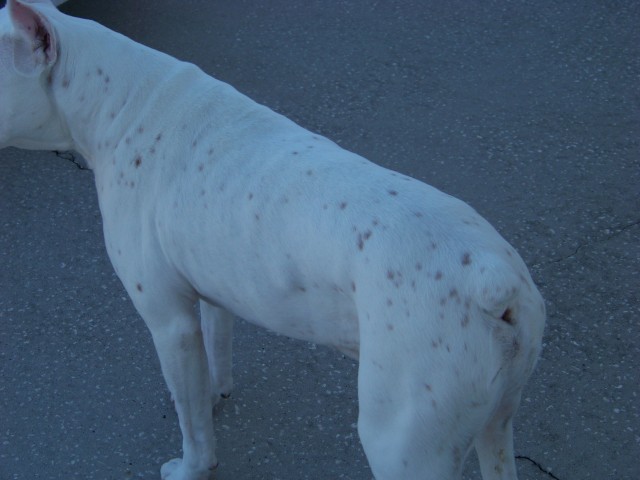 Color change in coat
Question
Brown Spots
Our 6 year old white male boxer ha
Color change in coat
Question
Brown Spots
Our 6 year old white male boxer ha
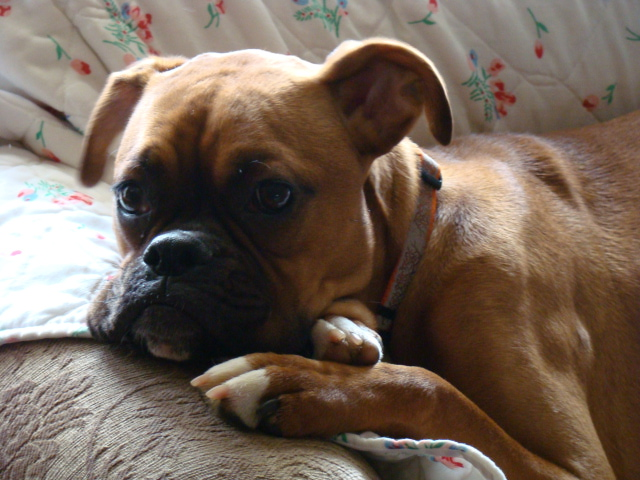 Aggressiveness
QuestionTaylor
QUESTION: Good morning Jannie,
W
Aggressiveness
QuestionTaylor
QUESTION: Good morning Jannie,
W
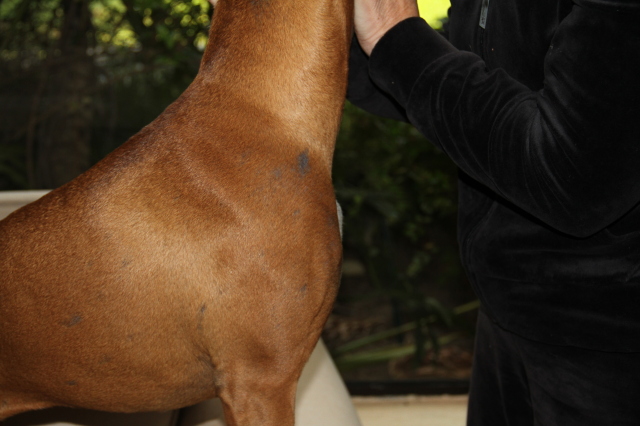 8 month Boxer (F) with skin patches
Question
Boxer Patches
Hi Jannie
Great helpful site!!
8 month Boxer (F) with skin patches
Question
Boxer Patches
Hi Jannie
Great helpful site!!
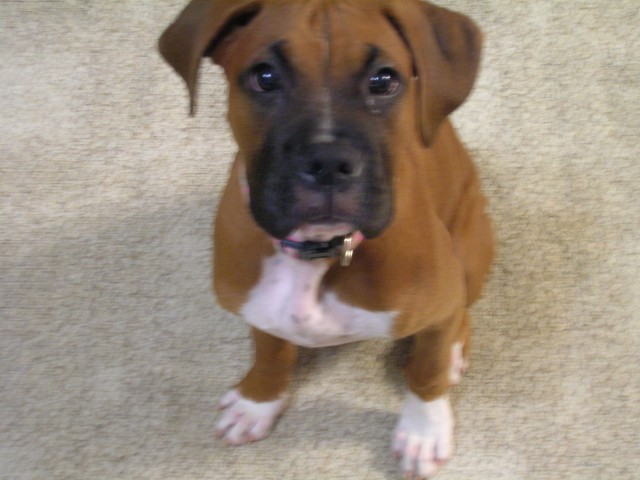 boxer puppy (female)
QuestionQUESTION: 1. is there a way to find out if our
boxer puppy (female)
QuestionQUESTION: 1. is there a way to find out if our
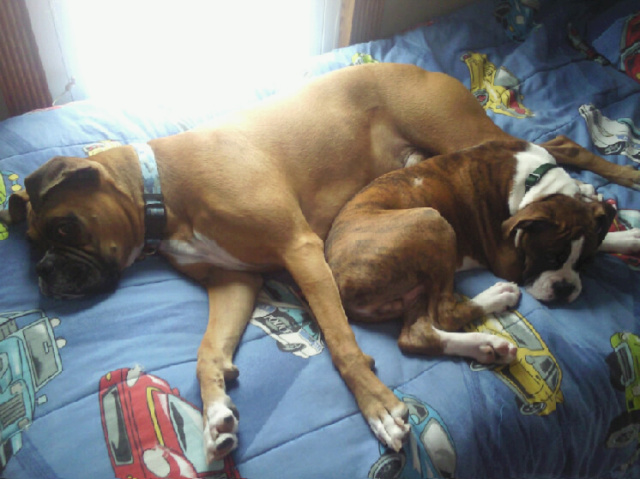 potty
Question
Our puppies
We just bought a boxer puppy 2 mon
potty
Question
Our puppies
We just bought a boxer puppy 2 mon